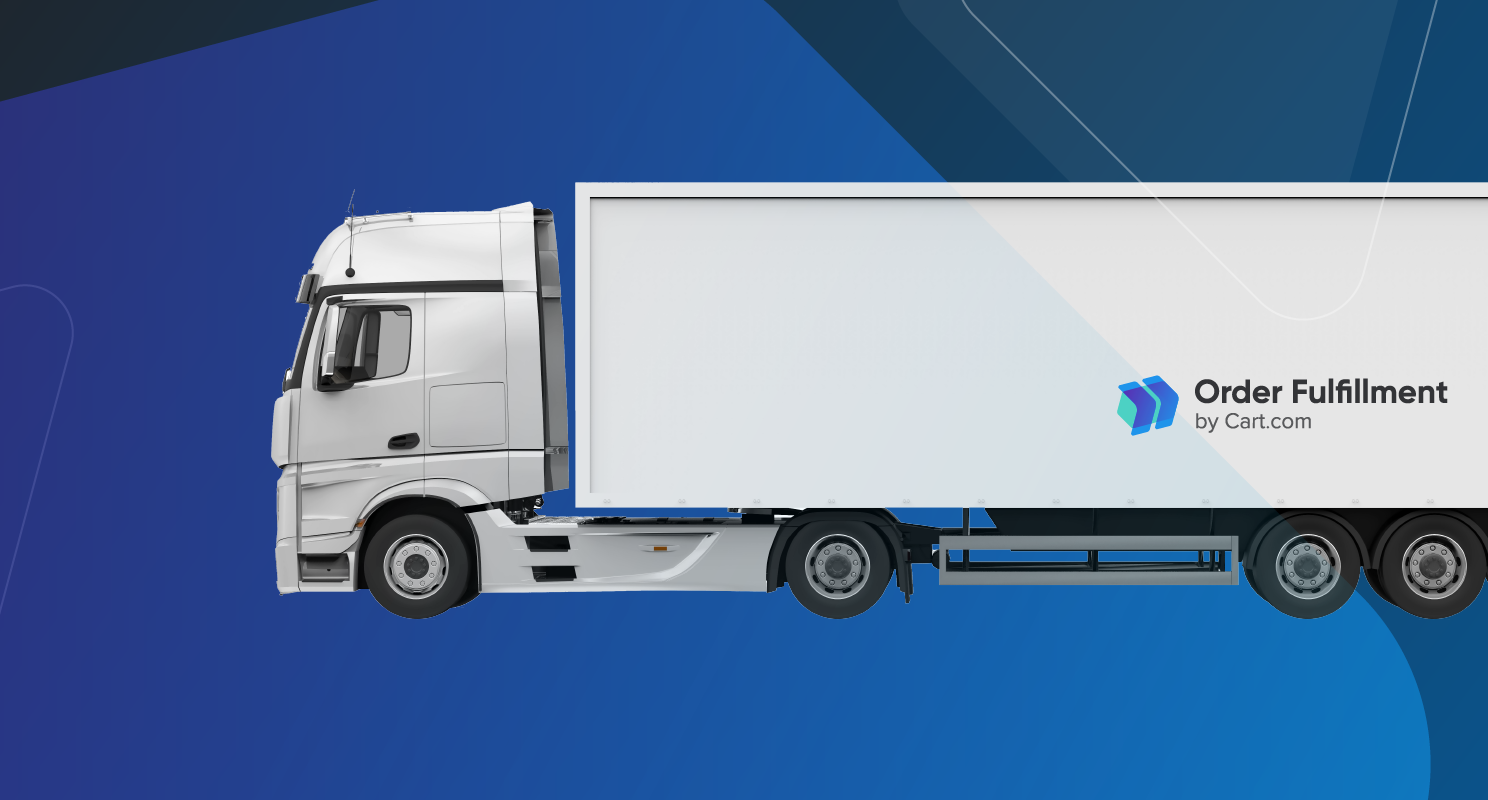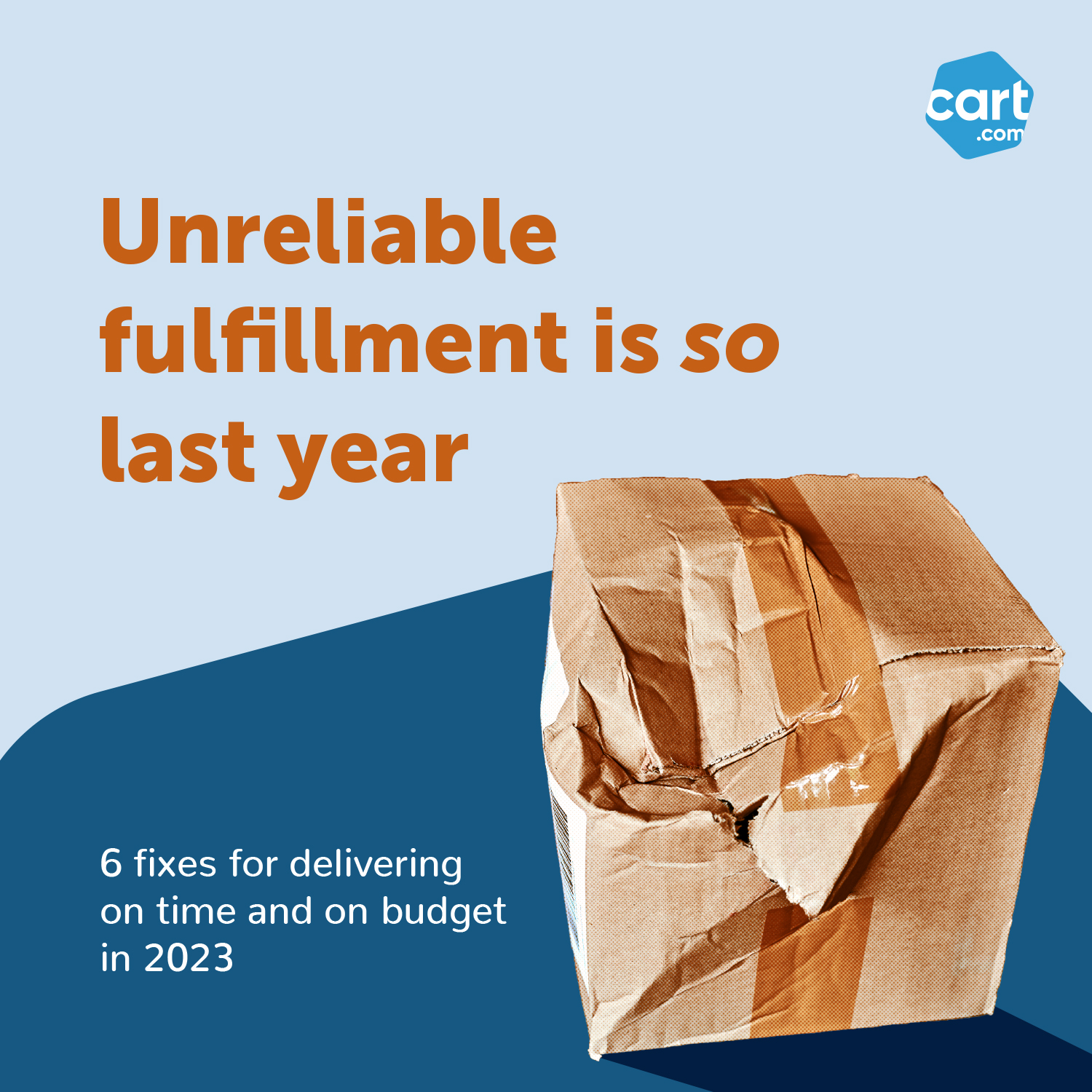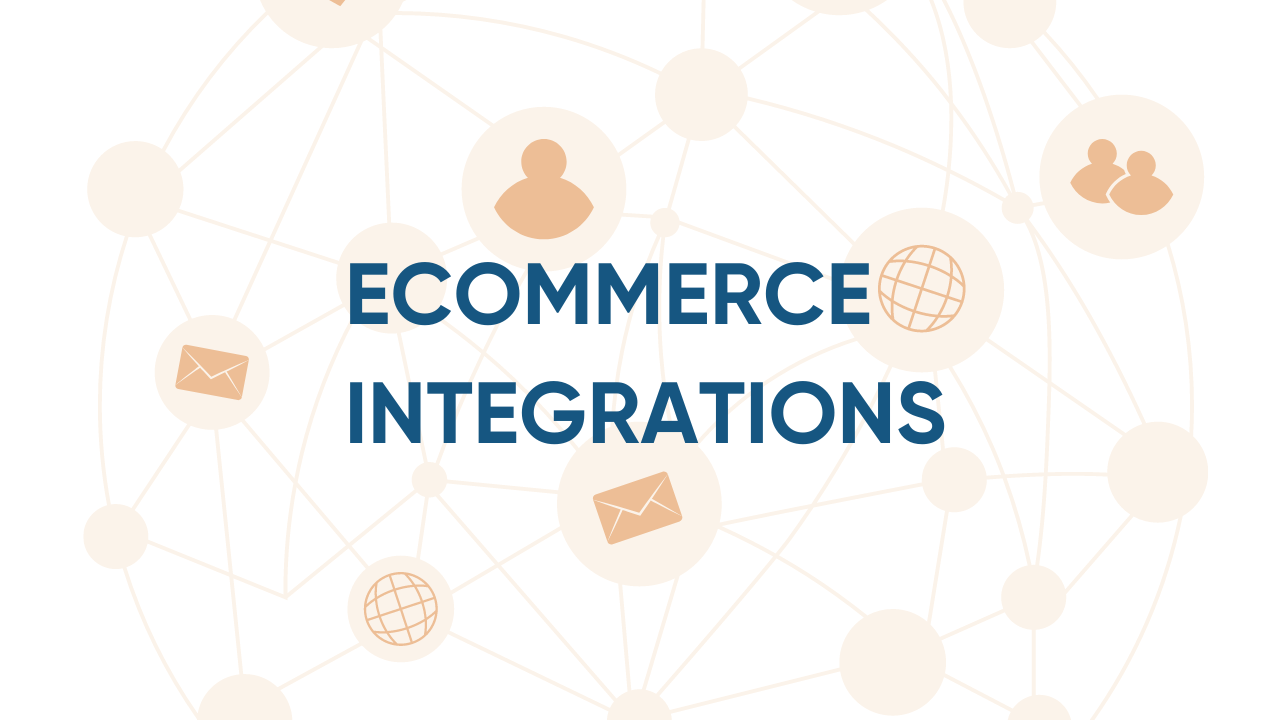When you’re building an ecommerce company, you have a mountain of things to think about—from product design and branding, to marketing, to sales, to the legal issues and HR headaches that come with building a growing business. Ultimately, though, none of that matters if you can’t get your products into your customers’ hands quickly and efficiently.
That final step in the process—fulfillment and logistics—is crucial, because delays or hiccups can lead to bad reviews, costly product returns, and the loss of repeat business. Get logistics right and—as Amazon, the bookseller-turned-behemoth, has shown—you can turn a niche ecommerce business into a global giant. Get it wrong, and you’ll wind up stuck in first gear.
Clearly, logistics are vitally important to a growing company. But here’s the catch: they’re also incredibly complicated. Very few founders have the inclination to build out a logistics business function, and even those that do will generally find that doing so distracts them from other core functions they should be attending to as they grow their business. For ecommerce founders, then, the key isn’t just to get logistics right—it’s to find a way of getting logistics right without spending all your time fretting about the details.
Logistics are complicated
First things first: managing logistics isn’t easy. Cross-country shipping involves about 10 different hand-offs, from warehouse to shipping company to last-mile, while international shipments typically pass through at least 25 different agencies once you factor in customs, shipping lines, and other entities. Managing all that takes expertise, connections, and above all time; in today’s busy world, most ecommerce founders simply don’t have the bandwidth.
Warehousing is also growing increasingly complex, with customers expecting rapid delivery that requires intelligent inventory management and multinodal fulfillment networks. In the face of such challenges, logistics is rapidly evolving from a simple process of moving stuff from Point A to Point B, and into a much smarter and higher-tech operation. Over a quarter of logistics companies now use IoT technologies to streamline warehouse operations, and almost half plan to implement such tech in the coming months; by 2023, according to Gartner, AI technologies will be used in 50% of supply chain solutions.
Such developments are making logistics and fulfillment more agile, more cost-effective, and more attuned to the needs and desires of digitally savvy consumers. But they also create a higher entry-bar for new ecommerce companies: it’s harder than ever to build out an effective fulfillment function, and also increasingly difficult to vet and keep tabs on third-party logistics (3PL) providers as the industry grows more and more interconnected and complex.
Such vetting is vitally important, because not all 3PL providers are equal. For example, many providers have only a single fulfillment center, making it essentially impossible to provide the rapid delivery that customers have now been trained to expect. Even those that have multiple distribution centers are often rooted in old ways of operating, and lack the smart, real-time inventory monitoring and digital communication tools needed to realize the benefits of that infrastructure in today’s digital-first world.
According to McKinsey, in fact, 50% of the largest U.S. importers still use spreadsheets — that’s right, Excel files — to manage their international supply chain. At present, in fact, 50% of existing logistics companies lack digital culture or training, and a third lack any coherent vision for digital. With such disparities between providers, finding trustworthy, forward-thinking 3PL partners is a key concern for today’s ecommerce founders.
Finding a scalable solution
Besides the sheer complexity of logistics, scalability is the single biggest concern for online sellers as they seek to manage fulfillment issues. You might be able to start off by stuffing envelopes and taping up shipment crates in your garage, but as your company grows you’ll need to rapidly build out more sophisticated systems for managing inventory, shipping, and returns.
Again, it’s hard for companies to do that on their own—not least because warehouse space is at a premium thanks to the recent surge in online shipments. During the pandemic, the space leased by American companies for logistics purposes rose by 21%; Amazon alone boosted its total warehouse and distribution square footage by about 50%. It’s difficult for any individual retailer to build out a national distribution network in such an overheated environment, and even harder to do so in a cost-effective way.
Unfortunately, however, many ecommerce businesses find themselves stuck in an awkward middle ground: too big to manage their own logistics, but too small to interest the big national and international 3PL providers. Solving this problem is becoming a major drain on founders’ time and energy, and an increasing distraction from their core goal of growing their brands.
A new approach
What’s needed is a new approach to logistics that focuses on supporting ecommerce founders across their entire lifecycle, from a scrappy operation run out of someone’s living room up to an established national or international brand. At Cart.com, we see this as part of the broader shift toward ecommerce 2.0—a process whereby founders are finding new efficiencies by using one-stop solutions for all their operational needs, from marketing to sales to logistics.
End-to-end ecommerce platforms make serving companies of all sizes a key part of their value proposition, and allow founders to tap into best-in-class third-party solutions and services without having to worry about vetting dozens of candidates or coordinating across multiple providers. When it comes to logistics, they also allow founders to impose order onto fragmented and chaotic ecommerce operations, benefit from the inherent scalability of a national distribution network, and serve up the intelligent analytics needed to optimize fulfillment based on the needs of a growing customer base.
Finally, by bringing the best digital solutions and services under a single well-resourced parent company, ecommerce 2.0 platforms can channel capital into developing the technologies needed to keep logistical operations flowing smoothly in a digital world. Standalone 3PL companies capture just an eighth as much VC capital as sexier last-mile delivery startups, so there’s a real need for consolidation to deliver the investment needed to drive the industry forward.
The bottom line is that ecommerce founders’ time is a finite and valuable resource. Logistics are incredibly important for any online merchant—but they’re too important for founders to try to manage on their own, or to farm out to standalone 3PL providers. To manage logistics effectively, founders need to stop trying to go it alone. It’s time to embrace the ecommerce analytics and the 2.0 revolution—and free up founders’ precious time for the creative leadership that truly provides value for their companies.






